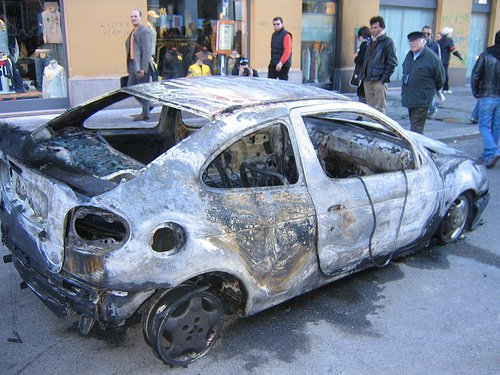Hundreds of migrants collided with law enforcement officers in the Italian city of Milan on Tuesday after paralyzing a major highway in protest of pitiable living conditions at a Red Cross immigrant center.
The migrants were also upset over their lack of ability to get work permits.
About 300 protesting immigrants made their way along a street connecting Sesto San Giovanni to Milan and temporarily obstructed traffic, while holding up placards of cardboard stating “We’re tired, we want our documents” and chanting “documents, documents.”
The refugees, mostly from Africa, are compelled to live in tents sheltering up to eight people at an immigrant center that remains swamped after last week’s intense rain, local paper Corriere della Sera reported.
Riot police arrived at the scene to deal with the spontaneous demonstration.
According to data from Italy’s Interior Ministry, this year alone, at least 100,000 immigrants and refugees have found themselves in Italy by sea.
The unparalleled arrival of migrants has caused amplified tensions between the main political parties in the country, with some maintaining it’s time to assume a harsher stance on the matter.
“Protests? Go home immediately!” Matteo Salvini , the head of the rightist Northern League party, posted on his Facebook page.
According to the Italian version of the Local, Paolo Gentiloni, the country’s Foreign Minister, said on Sunday that the growing migrant disaster is threatening to tear the “soul” out of the European Union.
“On immigration, Europe is in danger of displaying the worst of itself: selfishness, haphazard decision-making and rows between member states,” Gentiloni explained.
It is time for the whole European Union to stop sitting on its hands and take tough procedures, in Gentiloni’s view.
According to Corriere della Sera most of the immigrants are desperate refugees from the poverty-stricken states of northwest Africa.
As we covered yesterday, more immigration is needed within Europe to steam a wave of low birth rates, particularly in the south. As populations decline Europe is facing a crisis of not too many, but too few workers to care for an ageing population.
Stay Connected